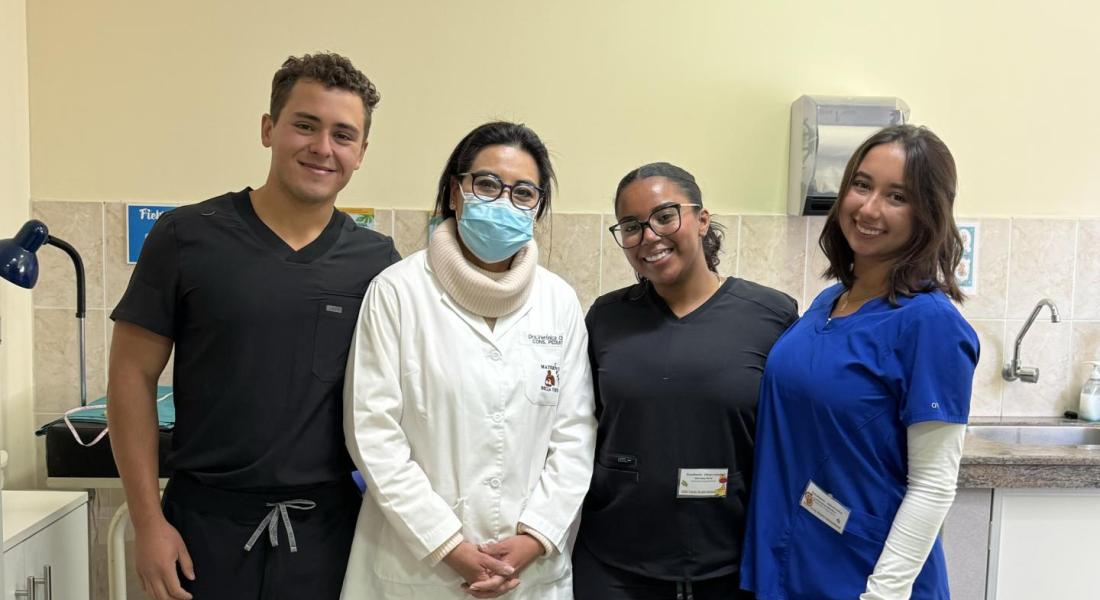
Valentina Morillas ‘26 (neuroscience and behavior) was funded through an Experiencing the World Fellowship to travel to Bolivia to work on her project, “3 Countries, 1 Language: Understanding the Vital Role of Physician-Patient Communication”.
These past two weeks have been centered around pediatrics. My first week I shadowed a pediatrician named Dr. Victoria Chambi, an excellent doctor and an even more excellent teacher. She works in the Centro de Salud in Bellavista, a poorer area about 30 minutes from my homestay. It is a primary clinic, meaning the first place people come in if they need a referral for a secondary or tertiary hospital that is more specialized to the certain problem at hand. We would see about 11 patients in four hours, and after every patient she would ask us if we had questions and would use her computer to explain what she had just diagnosed. For the most part we saw many babies (due to the Bono Juana Azurduy, which is a bonus they give mothers if they bring their baby once a month postpartum, and incentive by the country’s government to reduce infant-maternal mortality rate by paying the mothers to bring their child in for a checkup). A lot of what Dr. Chambi did was educate the mothers of how to properly nourish and breastfeed their baby. She also explained how the food habits are different here than the United States because of how high La Paz is in terms of altitude, which slows down digestion. She was wonderful and I learned so much through her explanations, both in terms of medicine and how to properly take care of my own child someday, which I thought was sweet and a big reason why I would like to go into the field of obstetrics.
The following week we rotated in the children’s hospital, El Hospital del Niño. In all honesty the first couple days there was rough as hospitals are a lot more chaotic. Our rotations consisted of picking a specialty every morning and following the residents during rounds as they presented their cases to the attending doctors. At times it was difficult to hear because of the masks, yet I wrote whatever I could pick up on and would later ask the doctor or nurse to walk me through a brief summary of each case and fill in whatever missing information. They also would let us read each file, in which I would write words I didn’t know and do my own investigation on the cases later. It got better the third day when we went to oncology and met Dr. Rivieros who was also a wonderful teacher and took the time to answer our questions. During that week I rotated between neonatology, internal medicine, and oncology, and would spend a few hours each day in each specialty to check in on the cases from the previous day. Thursday and Friday were the best days as we were with Dr. Mejía, the head of education in the hospital. With him I would stay an hour after my rotations in his office simply asking him question after question, in which he very happily would answer, drawing me pictures to visualize what he was explaining. I left the hospital those two days like a happy child, eager to understand the intricacies of the human body.





